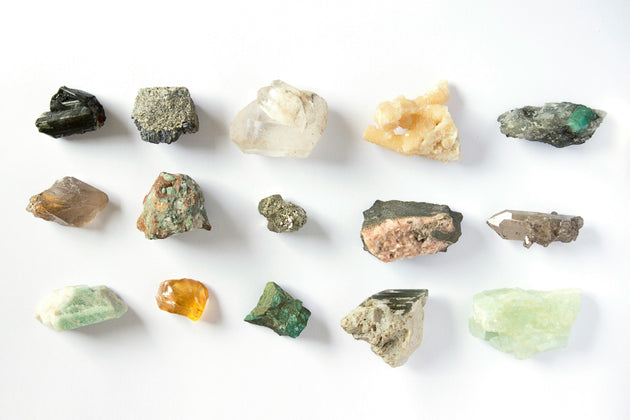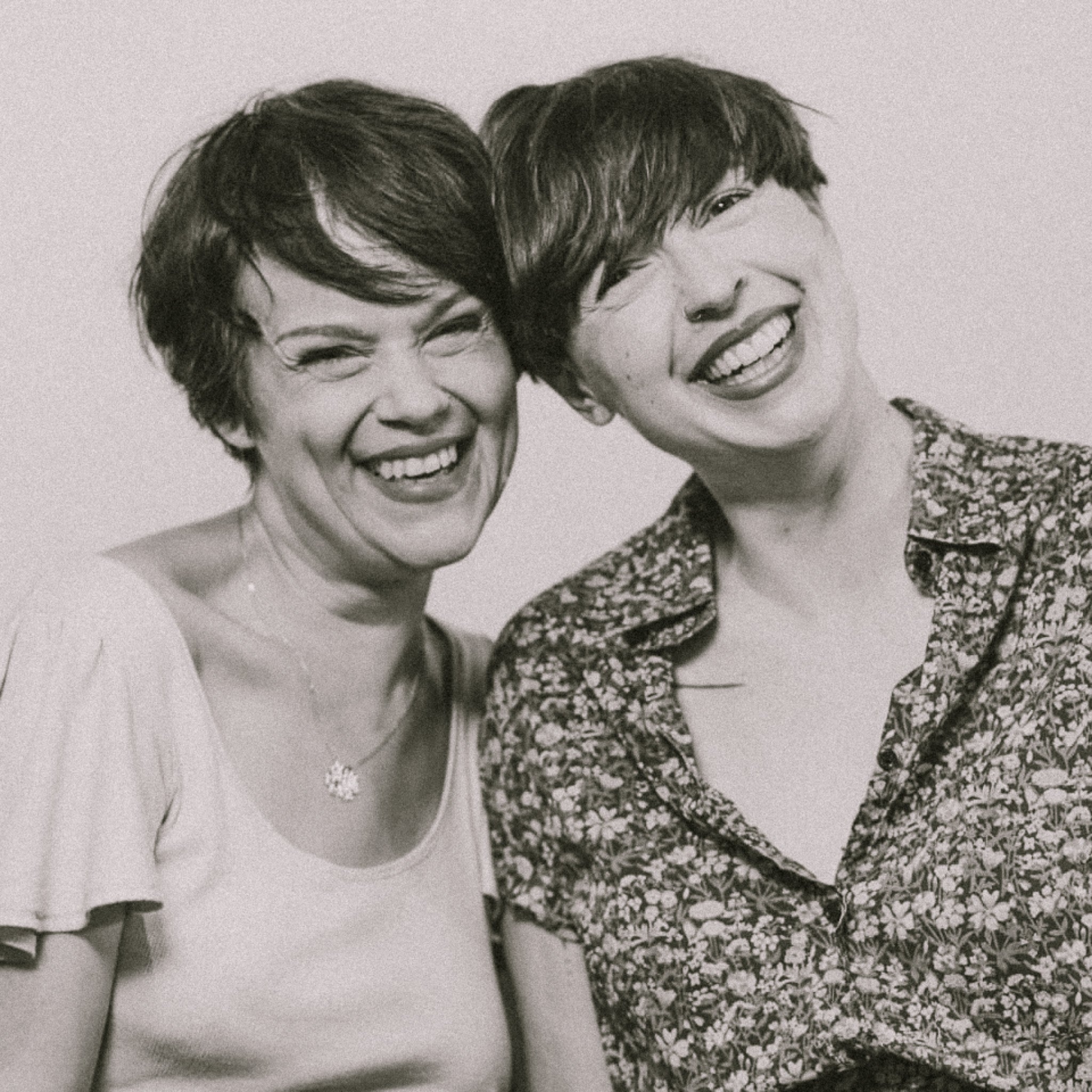
Lili Sohn is a comic strip author. At 37, she's the mother of two boys aged 3 and a half and 1 month, so the nights are short...
At what age did you discover you had breast cancer?
At the age of 29, I discovered one morning that the tip of my nipple was "tucked in"... I went for a check-up. When I received the results, I was told that I had a tumour the size of a ping-pong ball in the middle of my breast, which prevented me from feeling it...it was cancer.
I underwent genetic screening, which revealed that I carry a "predisposition gene" and that it comes from my mother's side. In fact, my grandmother had fought off two bouts of breast cancer, but as she devoted herself entirely to her work, no one had really been aware of her illness.
Did the doctors underestimate the disease?
My doctor wasn't worried because of my age, but he did prescribe a breast ultrasound as a precaution. I underestimated it myself, because I didn't think it was possible to get cancer at such a young age, and I didn't know much about it, apart from the hair loss during treatment.
Did you feel accompanied and supported?
As an expatriate living in Montreal at the time, I felt surrounded by friends. As for my family, the announcement of the disease was quite complicated, and I had to manage their emotions and reassure them. That's when I had the idea of opening a blog on the theme of the disease, with a humorous tone and illustrations, to tell my story and reassure my loved ones.
Precisely what did opening this blog bring you?
First of all, the fact that I'm a creator has given me something to do and keep me busy. There was also a therapeutic side, as the doctors gave me a lot of information that I was able to assimilate, transcribe into drawings and better accept.
I was then contacted by several publishing houses and published three "La Guerre Des Tétons" comic strips. So I changed jobs to make a living from my passion.
Since then, I've published other comics related to the female body, and I do a lot of popular science to talk about the disease in a relaxed way. I work with researchers, the Institut Curie and associations, because it's a subject that needs to be more visible. I've also opened my mind to other subjects, such as feminism, male/female inequalities, the relationship with medicine and gynecological violence.
Today, I'm happy to be alive, because being close to death has enabled me to let go of my inhibitions, to launch into my dream job and to be able to make a living from it.
Any message you'd like to pass on?
You shouldn't force yourself to be positive, but live as best you can. I haven't really forgotten the disease, especially with the scars and the fact of having children, which adds an extra layer of fear. But life is a bit like a rollercoaster.

Mélanie Loule has been living in Marseille for over 20 years! At 43, she is the mother of two daughters, Lila 15 and Thaïs 18. She has created her own brand of illustrations, Minimel.
At what age did you discover you had breast cancer?
On the evening of my 34th birthday, as I went to bed, I felt a lump in my breast the size of a cherry. When the diagnosis was announced, I was stunned! I carry the BRCA1 gene, the same as Angelina Jolie! It means a higher risk of cancer of both breasts and ovaries. After treatment, I had regular check-ups, first every six months, then once a year. But six years after the first one, the doctors discovered cancer in the other breast.
Did the doctors underestimate the disease?
It was a friend who forced me to see a doctor, but I wasn't worried. My gynecologist insisted that nobody had cancer at 30, but to eliminate any suspicion, she prescribed a mammogram and an ultrasound. The radiologist also reassured me, but the verdict was in after the tests...
Did you feel accompanied and supported?
I felt very much supported by my family and friends. When I had my first cancer, I received a lot of gifts, including an iPad, which enabled me to get back to drawing on a tablet, and that's how I started to keep busy and create my "Minimel" stationery brand.
What has your illness done for you?
I felt the need to talk about the disease, but I couldn't find many testimonials apart from those from women aged 60 and over. So I started talking about it on the Internet. Little by little, I received feedback and testimonials from women with breast cancer of all ages... some as young as 20. And we began to talk without taboos or discomfort.
The disease made me realize that I loved the woman I was and that I "cared about myself". That's what pushed me to look for what could make me happy and create the life I dreamed of.
Any message you'd like to pass on?
It's important to talk about breast cancer and to highlight the stories of women affected by the disease. Cancer affects many people, but it's a disease that can be cured if it's treated in time.

Julie Meunier is a bubbly 34-year-old woman. She lives between Toulon and Nice, is the founder of the "Les Franjynes" brand and author of the book "À mes sœurs de combat".
At what age did you discover you had breast cancer?
6 years ago, my doctor felt a cyst in my breast and recommended a hormone cream. I didn't pay any attention to it, but three weeks later I felt a lump rolling under the whalebone of my bra. I went back to the doctor, who ordered an ultrasound and a mammogram. After a series of tests and a long wait, I was diagnosed with breast cancer at the age of 27. My type of cancer was being studied in France, so I was offered a clinical trial that was very long and arduous... 18 months, 24 chemotherapies, 2 operations, 45 sessions of radiotherapy and 5 years of hormone therapy.
Did the doctors underestimate the disease?
Yes, because my doctor wasn't worried. The screening center didn't want to give me a mammogram at first, because I was young and there was no history of the disease in my family.
Did you feel accompanied and supported?
During the treatment, I had a lot of support and kindness from the medical team.
As for the people around me, it was more complicated... cancer is a scary thing and brings with it strange reactions and prejudices. I had to deal with some comments about my tattoos. But there was also a positive side: the people who were with me throughout the process, some of them... unsuspected.
What has your illness done for you?
My cancer made me want to find an alternative to traditional wigs. Les Franjynes is an alternative to wigs for women, girls and men following alopecia, i.e. hair loss due to illness or burns. The project was financed by crowdfunding with over 1,000 contributors! The adventure was launched!
I also collected many testimonies from sufferers, and decided to set the word free in my book "À mes sœurs de combat". I talk about the unspoken aspects of the disease, the difficulties it can cause even after recovery, the stigma that remains, but also the physical and mental pain.
Today, I realize that this protocol was "worth it" and that I finally feel good after these long years. I saw chemotherapy as my best friend, because it led me to recovery despite the serious consequences.
Any message you'd like to pass on?
There's no such thing as courage in the face of illness. It's in all of us, and it helps us to face up to the heavy trials. And to quote Philippe Croizon, "the impossible does not exist, because in impossible, there is possible".

Caroline is a young woman of 32, full of humor, who has set up the association "Le Gang des Crânes Rasés"! For the past year, she has been creating humorous videos on the theme of breast cancer on social networks.
At what age did you discover you had breast cancer?
During my confinement in March 2020, I realize that my breasts are swollen. I waited until June to see my gynecologist, who prescribed an ultrasound and a mammogram. Seeing that my breasts were still not deflating, I decided to have these tests in September. The doctors soon mentioned the possibility of cancer and invited me to have a puncture. After more than a week of waiting, on September 22, 2020, I was diagnosed with breast cancer, and in November the treatments began. In April 2021, the chemotherapy comes to an end, and they tell me about the operation, which scares the hell out of me. In May, I undergo surgery, with total removal and immediate reconstruction of my breast.
Did the doctors underestimate the disease?
No, because the doctors knew I'd lost both my parents to cancer and took my case seriously. I was the one who postponed the examinations, because I wanted to enjoy my summer after the confinement.
Did you feel accompanied and supported?
The doctors don't listen to us. They don't take the time to explain the consequences of our illness, and they don't prepare us for the possibility of losing a breast. What's more, the Covid complicated matters and delayed my operation.
As for the people around me, my friends are very supportive, especially one who had the right words to say when she heard I had cancer. But above all, my boyfriend is the real pillar, the only one who shares my daily life. For me, the key is to surround yourself with positive people who listen to you and pull you up.
What has illness done for you?
My upbringing was based on humor and positivity, which is why I started making fun of my head and sharing jokes on social networks.
The Gang of Shaved Skulls association was born following a video in which I walked down the street with my shaved head to accept myself and confront the way people look at me.
I interviewed people in the street, to find out what they thought of my hairless head, and repeated the experience while undergoing chemotherapy. I was surprised by the kindness of the people who encouraged me to continue. I then decided to organize parades, all over France, where the wigs would be thrown away at the end, and I spoke about it to Amandine and Justine who wanted to follow me in this project. The aim is to make women suffering from hair-loss cancer feel beautiful! But the aim is also to prevent breast cancer, which also affects women under 40.
This gives me a lot of pleasure and allows me to talk about the disease. I also take stand-up classes, where I talk about breast cancer in a humorous way.
Any message you'd like to pass on?
People with cancer need to get informed and take an interest in their case. It's important to always get two medical opinions. And above all, pay attention to how you feel, because it's not the doctors who feel the effects.



